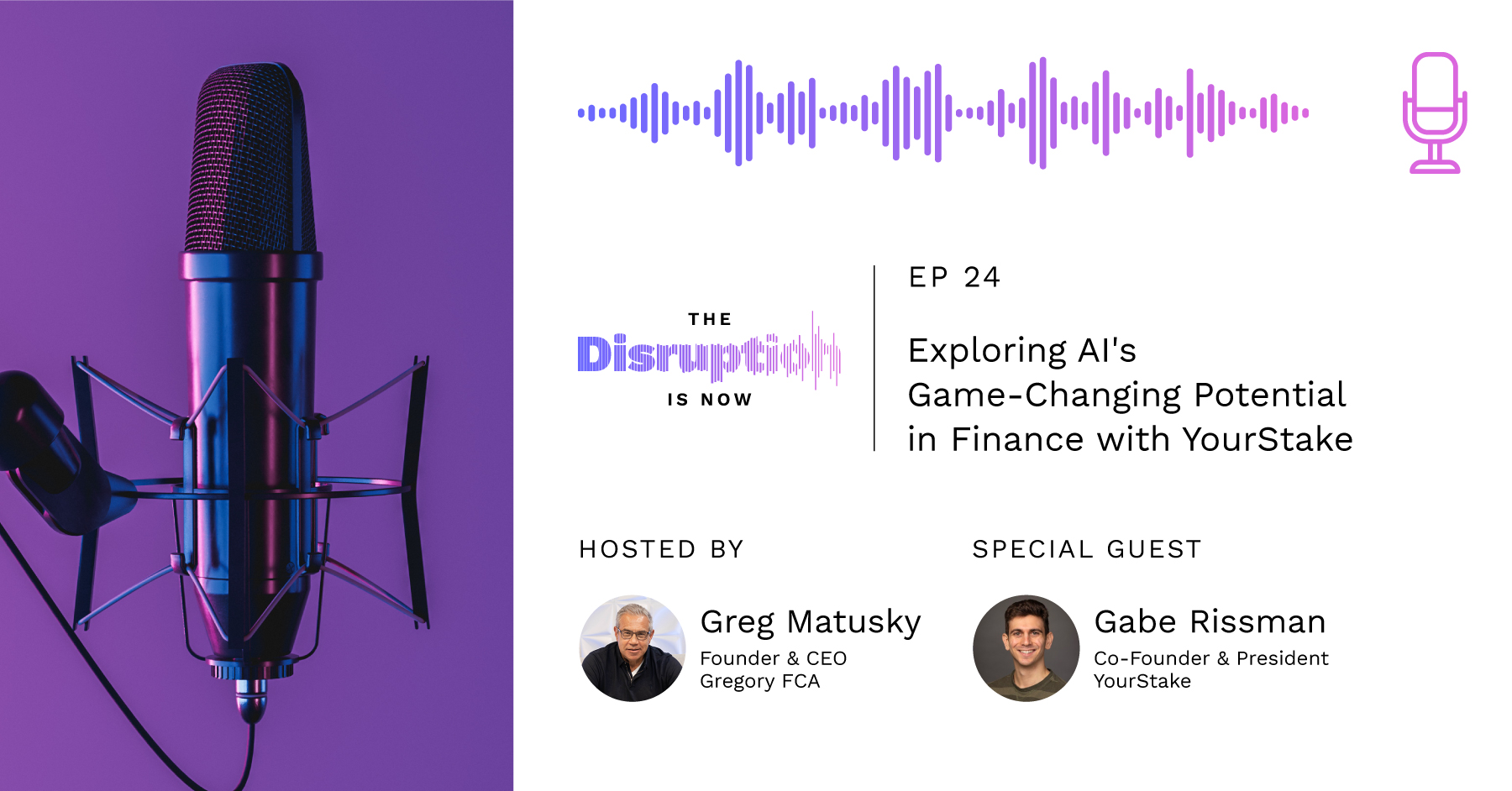The start of a new client engagement can be a lot of work for financial advisors. They need to quickly get up to speed on where that person stands financially and start delivering advice and a plan for reaching their goals. Now AI is helping advisors complete that work faster and with less friction.
Tools like YourStake give the more time-consuming and tedious onboarding tasks to AI so advisors can focus on their clients. YourStake co-founder Gabe Rissman has a unique perspective on AI. Before striking out as an entrepreneur in financial services, he studied computational astrophysics at Yale and spent a lot of time doing nuclear fusion research.
His conversation with host Greg Matusky on the latest episode of The Disruption Is Now ranges from the benefits of AI for financial advisors to the future of AI and robotics to how AI is already enhancing human understanding in fusion research. It’s a reminder that AI is at its best when combined with human ingenuity and oversight, and humans — from financial advisors to physicists — can do their best work when assisted with AI.
Watch now:
AI streamlines onboarding for financial advisors
Financial advisors face time-consuming tasks when onboarding clients, like portfolio review and building personalized investment proposals. YourStake’s AI capabilities automate these friction points, making it easier to bring on more clients faster.
Advisors see more efficiency and can spend more time building the client relationship while clients get personalized advice sooner.
AI hallucinations can be eliminated, but many organizations value them
YourStake uses generative AI in a way that avoids the pitfalls of hallucinations, which could be particularly troublesome in financial services.
At the same time, other industries like law might welcome the creativity that hallucinations can offer. In the right context, with the right controls in place, AI can bring different thinking to the table, and any guardrails around AI outputs would make AI less useful.
With access to more data, AI could have an even bigger impact on R&D
Gabe notes that generative AI is built on language data, but with more logic and reasoning and an understanding of how the world works, it could add even more to human understanding.
This is already happening in fields like physics, where AI has predicted 2 million stable materials for use in fusion, up from the 20,000 materials humans had an understanding of before.
AI serves as a coach and co-pilot in professional services
AI complements human skills by taking on routine tasks and providing analytical insights, freeing professionals to focus on the more nuanced and complex aspects of their roles.
This collaborative interaction between AI and human expertise can help professionals achieve higher levels of productivity, take more pride in their work, and be more effective in their jobs across various fields, from financial advising to content creation and beyond.
Key takeaways:
● Friction in the advisor onboarding process that AI can solve (1:41)
● Three ways AI helps advisors accelerate onboarding (4:38)
● Addressing the consistency and reliability of AI outputs (7:48)
● The value of AI in brainstorming and creativity (10:31)
● How development has to keep up with advancing AI capabilities (12:48)
● How AI could evolve scientific research (16:06)
● The increasing energy demands of AI (19:25)
● AI as a coach and co-pilot (24:25)


